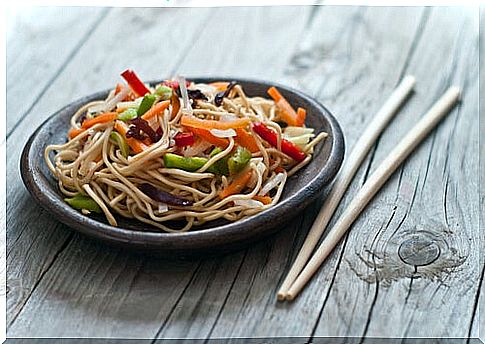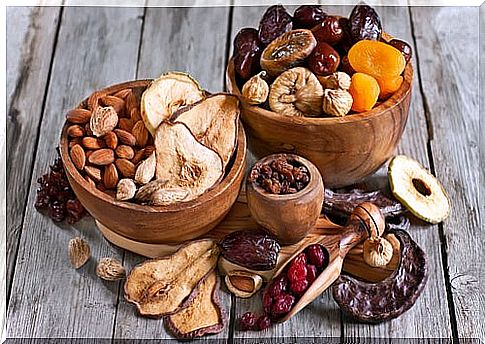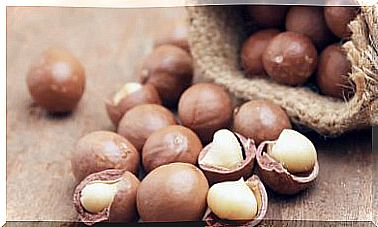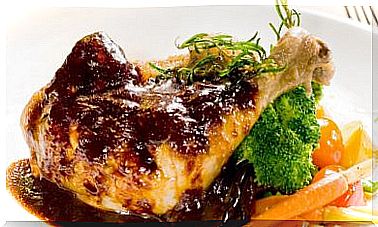6 Healthy Foods To Control Hypoglycemia
Hypoglycemia is a condition that occurs when blood sugar levels decrease, that is, its values are equal to or lower than 60 mg / dl. Although it is not healthy to have too high glucose, the body needs this energy for the function of all its systems.
However, just as its levels increase in certain situations, dangerous drops can also occur that put health at risk. Luckily, there are some foods that can help keep this condition at bay. We tell you what they are.
What Causes Hypoglycemia?
Generally, blood sugar levels drop as a result of medications used to control diabetes. However, according to the Mayo Clinic, the causes of this condition in people who do not have diabetes can be the following:
- Taking diabetes medications by mistake.
- Drinking alcohol in excess.
- Having liver disease, such as hepatitis or cirrhosis.
- Producing too much insulin.
- Present disorders of the adrenal glands and tumors in the pituitary.
6 foods to control hypoglycemia
As we mentioned, hypoglycemia can be the product of an excessive release of insulin by the pancreas or the greatly reduced production and release of glucose. As a consequence, a series of physical, neurological and emotional reactions are generated that inevitably affect the quality of life.
The continuous dizziness, the appearance of visual problems and the difficulties to achieve concentration, are just some of the frequent symptoms of this condition. In addition, when it is not given timely control, it can lead to more serious, life-threatening problems.
Fortunately, there are some methods and treatments to reverse this situation. In the following space we highlight the 6 best foods so that you do not hesitate to add them to your diet if this condition afflicts you.
1. Wholemeal pasta

According to research in the Nutrients Magazine , consuming whole foods is a good food option to control hypoglycemia. These contain complex carbohydrates and proteins of high biological value that help stabilize blood glucose levels.
Unlike refined products, which are made up of simple carbohydrates, this variety takes longer to digest in the intestine. Therefore, they help to have more stable glucose levels and represent a healthy source of energy.
2. Oats
The so-called queen of cereals, it is also used to maintain adequate blood sugar levels. In fact, another publication in the Nutrients Magazine points out that, in a study carried out in patients with type 2 diabetes, it was shown that the ingestion of oats would have benefits for glucose control.
This is due to its concentration of fiber and complex carbohydrates. These take time to be digested in the intestine, which increases the body’s ability to transform them into energy sources. Its essential amino acids, in addition to its vitamins and minerals, could counteract the symptoms of low sugar levels.
3. Nuts

Nuts contain a variety of essential nutrients that can help control hypoglycemia in a natural and healthy way. Unlike other sources of protein, these take longer to digest. So do not hesitate to increase the consumption of walnuts, almonds, peanuts, etc.
4. Lean meats
The nutrients present in chicken and fish would be beneficial to combat the negative effects of hypoglycemia. Indeed, an article in the Journal of Education and Health Promotion includes them in the diet plan to control type 2 diabetes.
5. Legumes
Recommended in the menu of various types of diet, legumes are good allies to control hypoglycemia. As a review published in Critical Reviews in Food Science and Nutrition indicates , this food, in addition to being beneficial in reducing risk factors for cardiovascular and kidney disease, would have antidiabetic potential.
6. Fruits and vegetables
It is no secret to anyone that fresh fruits and vegetables are one of the most beneficial foods for the body. In addition, they are a good complement for the treatment of hypoglycemia, since their essential nutrients regulate blood glucose and support the functions of metabolism.
They contain fiber, amino acids and natural sugars, whose absorption promotes the balance of sugars in the body. This, added to their low calorie content and high levels of antioxidants, makes them essential in the eating plan.
Taking these nutritional recommendations into account is a good way to support the treatment of hypoglycemia. Finally, it is essential to understand that while refined sugars may seem like a quick fix, they can actually lead to negative consequences. Therefore, when in doubt, it is best to consult with the nutritionist.









